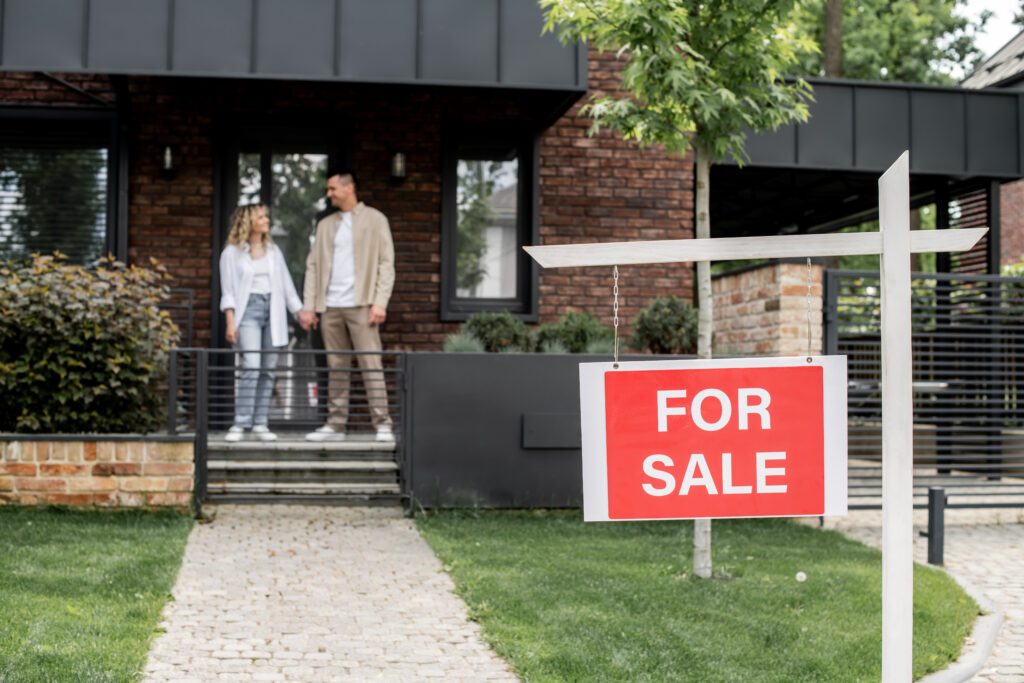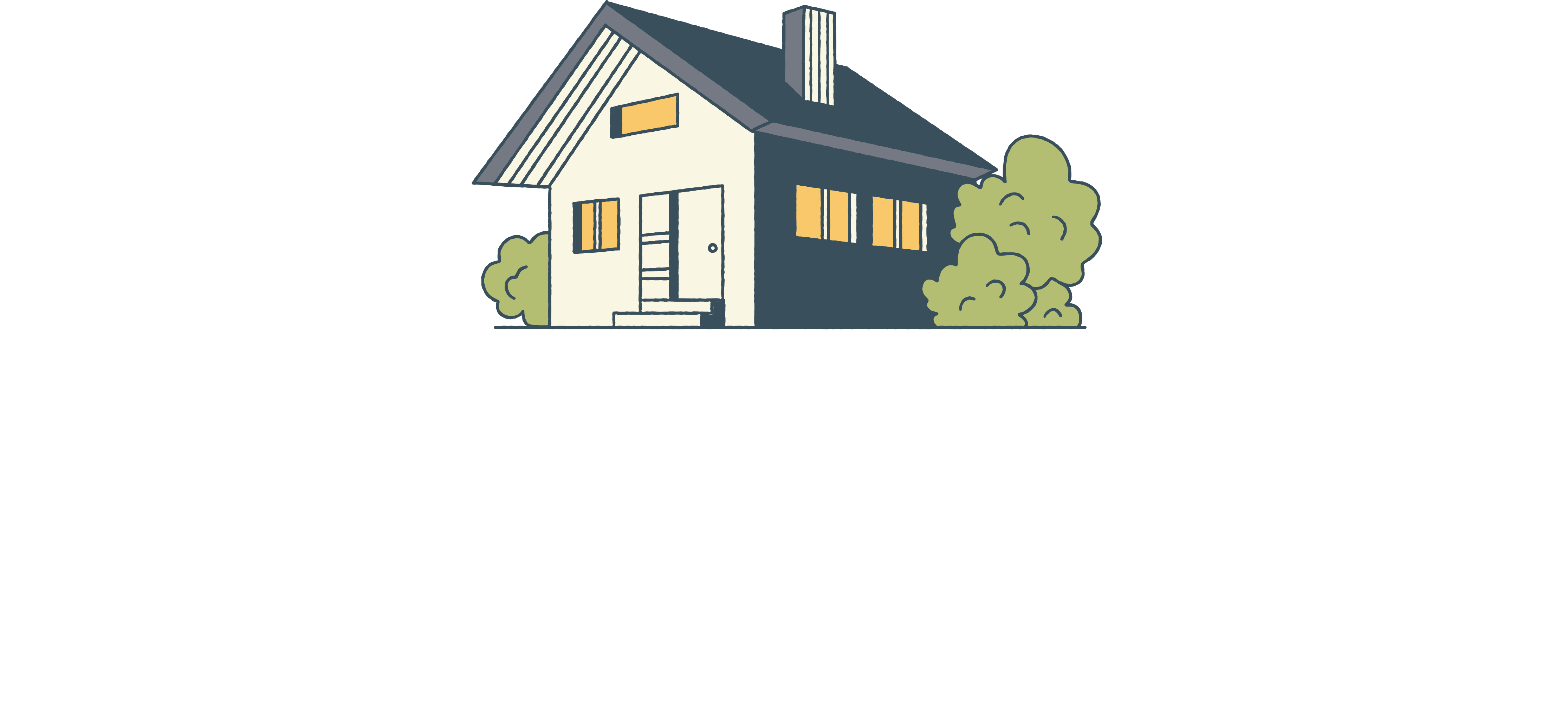Selling your home in Georgia can be an exciting yet daunting task. Whether you’re relocating for a new job, upgrading to a bigger home, or downsizing for retirement, this comprehensive guide will help you navigate the process smoothly and confidently.
The journey of selling a home is filled with both anticipation and challenges. The thought of starting a new chapter in your life, finding the right buyer, and maximizing the value of your property brings a mix of emotions. Each home is unique, with its own stories and memories, and preparing it for sale requires careful consideration and planning.
Relocating for a new job often comes with time constraints and the need for a quick sale, while upgrading to a bigger home might involve balancing the sale of your current property with the purchase of a new one. Downsizing for retirement, on the other hand, might be driven by the desire for a simpler, more manageable lifestyle. No matter the reason, understanding the intricacies of the real estate market in Georgia is crucial.
The process involves several key steps, from making necessary repairs and staging your home to attract potential buyers, to setting the right price and effectively marketing your property. Each step plays a vital role in ensuring a successful sale. This guide is designed to provide you with all the information and tools you need, making the process as seamless and stress-free as possible.
Imagine the excitement of moving into a new home that better suits your current lifestyle, or the relief of finding the perfect buyer who appreciates the charm and value of your property. With the right approach and guidance, you can turn what may seem like a daunting task into a rewarding experience.
In the pages that follow, we’ll delve into each aspect of selling your home in Georgia, offering practical advice, tips, and strategies that have been proven to work. From preparing your home for the market to negotiating offers and closing the deal, you’ll find everything you need to achieve a successful sale. Let’s embark on this journey together and make your home-selling experience a positive and profitable one.
1. Prepare Your Home for Sale

Declutter and Depersonalize
The first step in preparing your home for sale is to declutter and depersonalize. This means going through each room and removing any items that could distract potential buyers from envisioning themselves in the space. Start with personal items like family photos, children’s artwork, and any memorabilia that is distinctly yours. The goal is to create a neutral environment where buyers can imagine their own lives unfolding.
Decluttering is also about simplifying and creating a sense of space. Remove excess furniture to make rooms look larger and more open. Clear countertops in the kitchen and bathrooms, and organize closets and storage areas to highlight the available space. Think of it as a pre-move purge; you’ll be getting rid of things you no longer need or want, which can also make your eventual move easier.
Make Necessary Repairs
Next, address any minor repairs that could deter buyers. This might include fixing leaky faucets, replacing broken tiles, patching up holes or cracks in the walls, and touching up chipped paint. These small repairs can have a big impact on how buyers perceive the overall condition of your home.
Regular maintenance should also be checked. Make sure all light fixtures are working, doors and windows open and close properly, and that your HVAC system is in good working order. Buyers often look for signs that a home has been well cared for, and addressing these minor issues can prevent them from becoming negotiating points later on.
Enhance Curb Appeal
First impressions are crucial in real estate, and the exterior of your home is the first thing potential buyers will see. Enhancing your home’s curb appeal can significantly impact their initial perception and make them more eager to see what’s inside.
Landscaping is one of the easiest ways to boost curb appeal. Ensure your lawn is mowed, bushes are trimmed, and flower beds are weeded. Adding fresh mulch and some seasonal flowers can add a pop of color and make your home feel more inviting.
Exterior touch-ups might include a fresh coat of paint on the front door, cleaning or painting shutters, and washing windows. Make sure your house number is clearly visible, and consider updating outdoor light fixtures for a more modern look. Power washing your home’s exterior, driveway, and walkways can also make a big difference.
Staging the entrance can create a warm welcome. Consider placing a new welcome mat, adding a few potted plants, and making sure the front porch or entryway is clean and inviting. These small touches can set the tone for the rest of the home tour and make a lasting impression on potential buyers.
By taking these steps to prepare your home for sale, you’ll create a more appealing and market-ready property that can attract serious buyers and potentially lead to a quicker and more profitable sale. Remember, the effort you put into preparing your home can pay off significantly when it comes time to sell.
2. Determine the Right Price

Setting the right price for your home is one of the most crucial steps in the selling process. Price it too high, and your home may languish on the market; price it too low, and you could leave money on the table. Here’s how to strike the perfect balance:
Research the Market
Begin by consulting with a trusted realtor to study the real estate market in your neighborhood. A knowledgeable realtor can provide insights into recent sales of homes similar in size, age, condition, and location to yours. These comparable sales, often referred to as “comps,” provide a realistic baseline for what buyers are willing to pay.
While online real estate platforms such as Zillow, Redfin, and Realtor.com can offer a quick estimate, they use aggregator data models that aren’t always accurate. For instance, the CEO of Zillow sold his house for 30% less than what Zillow estimated. Additionally, relying solely on price per square foot isn’t always the best route for valuing a home. A trusted realtor can provide a more accurate and tailored valuation.
Analyze Current Market Conditions
Understanding broader market trends is also important. Are home prices in your area rising or falling? Is it a buyer’s market, with many homes available, or a seller’s market, with few listings and high demand? These conditions can affect how you price your home.
Seasonal trends can also play a role. For instance, the real estate market typically heats up in the spring and summer, which can affect pricing strategies.
Get a Professional Appraisal
While online research provides a good starting point, a professional appraisal offers a detailed and unbiased assessment of your home’s value. An appraiser evaluates your home’s features, condition, and improvements, comparing it to similar properties that have recently sold in your area.
Hiring a professional appraiser ensures you have an accurate valuation. This can prevent the pitfalls of overpricing, which can scare off potential buyers, or underpricing, which can result in a quick sale but at a loss of potential profit.
Consider the Cost of Improvements
If you’ve made significant improvements to your home, such as a kitchen remodel or a new roof, these can add value. Be sure to factor these into your pricing strategy. However, not all improvements yield a high return on investment, so it’s important to understand which upgrades add the most value.
Upgrades and renovations should be documented, including costs and the impact on your home’s overall appeal. This documentation can support a higher asking price.
Consult with a Real Estate Agent
A local real estate agent can provide a Comparative Market Analysis (CMA), which combines data from recent sales, active listings, and market conditions. An experienced agent understands the nuances of your local market and can help you set a competitive and attractive price.
Expert insights from a real estate agent can also include advice on how to adjust your price based on buyer feedback and market response. This can be particularly useful if your home doesn’t attract immediate interest.
Test the Market
Sometimes, it can be beneficial to test the market with the guidance of your realtor. They can help set an initial price and make adjustments based on feedback and activity. If your home garners a lot of interest and multiple offers, it could indicate that the pricing is just right or even slightly low, which can drive up the final sale price through bidding.
Monitoring activity such as the number of showings and inquiries in the first few weeks can provide clues about how well your home is priced. A trusted realtor can help make quick adjustments to attract the right buyers and maximize your return.
3. Choose the Right Real Estate Agent

Selecting the right real estate agent is a critical step in the home-selling process. An experienced and knowledgeable agent can make the difference between a smooth, successful sale and a stressful, prolonged experience. Here’s how to choose the best agent for your needs:
Look for Experience and Local Knowledge
Experience matters. An agent who has been in the business for several years will have a wealth of knowledge about the intricacies of real estate transactions. They will have encountered and resolved various issues that can arise during the selling process. Look for an agent with a proven track record in selling homes similar to yours.
Local knowledge is equally important. An agent who understands Georgia’s real estate landscape will have valuable insights into neighborhood trends, pricing strategies, and buyer preferences. They will know the local market conditions and can provide advice tailored to your specific area. This knowledge can be crucial in pricing your home correctly and marketing it effectively.
Check Reviews and References
Reviews and references provide a window into an agent’s reputation and reliability. Start by reading online reviews on real estate websites, social media, and local business directories. Pay attention to both the overall rating and the specific comments made by previous clients.
Ask for references directly from the agent. A reputable agent should be willing to provide contact information for past clients who can speak to their experience. When you speak with these references, ask about the agent’s communication style, negotiation skills, and how well they handled challenges during the sale.
Evaluate Communication Skills
Communication is key in real estate transactions. Choose an agent who is responsive and keeps you informed throughout the process. During your initial meetings, assess how well the agent listens to your concerns and answers your questions. An agent who communicates clearly and promptly will help alleviate the stress of selling your home.
Assess Marketing Strategies
Marketing is a crucial component of selling a home. Ask potential agents about their marketing strategies. How do they plan to advertise your home? Will they use professional photography, virtual tours, and online listings? A good agent should have a comprehensive marketing plan that includes both traditional and digital methods to reach a wide audience.
Understand Their Network
Networking can play a significant role in a successful sale. An agent with a strong network of other real estate professionals, potential buyers, and local businesses can provide additional exposure for your home. They may also have connections to reliable contractors, inspectors, and attorneys who can assist with various aspects of the sale.
Discuss Fees and Contracts
Fees and contracts should be transparent and fair. Understand the agent’s commission structure and any additional costs that may be involved. Review the contract carefully before signing, and don’t hesitate to ask questions if anything is unclear. A reputable agent will be upfront about their fees and willing to explain the terms of the contract.
Trust Your Instincts
Trust your instincts when selecting an agent. You should feel comfortable and confident in their abilities. If something doesn’t feel right, it’s okay to keep looking until you find an agent who meets your needs and with whom you can build a trusting relationship.
Choosing the right real estate agent is an investment in the success of your home sale. By looking for experience, checking reviews, evaluating communication skills, assessing marketing strategies, understanding their network, and discussing fees and contracts, you can find an agent who will work diligently to sell your home at the best possible price.
4. Market Your Home

Marketing your home effectively is essential to attracting potential buyers and ensuring a successful sale. Here’s how to maximize your home’s visibility and appeal:
Professional Photography
Invest in professional photography to showcase your home in the best light. High-quality photos can make a significant difference in attracting buyers online. A professional photographer will know how to highlight your home’s best features, use proper lighting, and capture images that make your home look spacious and inviting. These photos will be used in all your marketing materials, so it’s worth the investment.
Staging your home before the photo shoot is also crucial. A staged home looks more appealing and helps potential buyers envision living in the space. Work with your real estate agent to stage your home, or consider hiring a professional stager if necessary.
Online Listings and Social Media
List your home on popular real estate websites such as Zillow, Realtor.com, and Redfin. These platforms have a vast audience of potential buyers and provide detailed information about your home. Ensure your listing includes high-quality photos, a compelling description, and key details such as the number of bedrooms, bathrooms, square footage, and special features.
Leverage social media platforms to reach a broader audience. Share your listing on Facebook, Instagram, and Twitter, highlighting key features, neighborhood amenities, and upcoming open houses. Use targeted ads to reach potential buyers in specific demographics or geographic areas. Social media is a powerful tool for generating interest and driving traffic to your listing.
Host Open Houses
Open houses provide an opportunity for multiple buyers to view your home in a relaxed setting. They can attract serious buyers who may not have scheduled a private showing but are interested in seeing your home.
Preparing for an open house involves ensuring your home is clean, well-lit, and inviting. Declutter and stage each room to make it as appealing as possible. Provide brochures or flyers with key information about the home and neighborhood, and consider offering refreshments to create a welcoming atmosphere.
Promote your open house through online listings, social media, and local advertisements. Notify your neighbors, as they might know someone looking to move into the area. Your real estate agent can help coordinate and host the event, answering questions and highlighting the best features of your home.
Virtual Tours and Videos
Virtual tours and videos are becoming increasingly popular, especially in the wake of the COVID-19 pandemic. A virtual tour allows potential buyers to explore your home from the comfort of their own without scheduling an in-person visit. High-quality video walkthroughs can provide an immersive experience that static photos can’t.
Creating a virtual tour involves working with a professional who can capture 360-degree images of each room and create an interactive experience. Share the virtual tour on your online listings, social media, and your real estate agent’s website to reach as many potential buyers as possible.
Print Advertising and Direct Mail
Print advertising can still be effective, especially in local markets. Advertise your home in local newspapers, real estate magazines, and community newsletters. These publications often reach an audience that might not be active online.
Direct mail campaigns can also be a useful tool. Send postcards or brochures featuring your home to targeted neighborhoods, previous buyers, or people who have shown interest in similar properties. Direct mail can create a personal touch and capture the attention of potential buyers who prefer traditional methods of communication.
Networking and Word of Mouth
Networking within the real estate community and beyond can generate interest in your home. Your real estate agent likely has connections with other agents who might have buyers looking for a property like yours. Attend local real estate events and open houses to spread the word.
Word of mouth can be powerful. Let friends, family, and colleagues know that your home is for sale. They might know someone looking to buy or be willing to share your listing with their own networks. Personal recommendations can add credibility and reach potential buyers who might not see your home through traditional marketing channels.
By utilizing a combination of professional photography, online listings, social media, open houses, virtual tours, print advertising, direct mail, and networking, you can effectively market your home and attract a wide range of potential buyers. Each method plays a crucial role in showcasing your property and generating interest, ultimately leading to a successful sale.
5. Negotiate Offers

Negotiating offers is a crucial step in the home-selling process. It’s where you can maximize the value of your home and ensure a smooth transaction. Here’s how to navigate this stage effectively:
Review Each Offer Carefully
When you receive offers, it’s essential to evaluate each one thoroughly. Don’t just focus on the proposed price; consider all aspects of the offer, including contingencies and the buyer’s financing.
Proposed Price: The offer amount is important, but it’s not the only factor to consider. An offer slightly below your asking price might still be the best option if it comes with favorable terms.
Contingencies: These are conditions that must be met for the sale to proceed. Common contingencies include home inspections, financing approval, and the sale of the buyer’s current home. Fewer contingencies generally mean a smoother and quicker sale, but some contingencies, like a home inspection, are standard and protect both parties.
Buyer’s Financing: Understanding how the buyer plans to finance the purchase is critical. A buyer with a pre-approved mortgage or paying in cash is generally more reliable than one who still needs to secure financing. Your agent can help verify the strength of the buyer’s financial position.
Counteroffers and Negotiations
Don’t be afraid to make counteroffers. Negotiations are a normal part of the process, and your agent will guide you in securing the best possible deal.
Counteroffers: If an initial offer is lower than what you’re willing to accept, you can make a counteroffer. This might involve proposing a higher price, adjusting contingencies, or offering to cover certain closing costs. Be clear about what changes you’re willing to accept and prioritize your needs.
Negotiation Strategy: Your agent will play a key role in negotiations. They can provide insights into the buyer’s motivations and flexibility. It’s essential to remain professional and objective, focusing on your goals while being open to reasonable compromises. A good negotiation leaves both parties feeling satisfied with the outcome.
Multiple Offers: If you’re fortunate enough to receive multiple offers, use this to your advantage. Your agent can help you navigate a bidding war, where buyers compete by submitting increasingly higher offers. However, the highest offer isn’t always the best; consider the overall terms and reliability of each buyer.
Stay Flexible: Be prepared for back-and-forth negotiations. This might take several rounds of counteroffers before you reach an agreement. Stay flexible but also know your limits. It’s essential to keep your priorities in mind and not get swayed by minor concessions that don’t align with your goals.
Finalizing the Agreement
Once you’ve negotiated and accepted an offer, you’ll move forward with the closing process. This involves finalizing the contract, addressing any contingencies, and preparing for the final sale.
Contract Review: Carefully review the final contract with your agent to ensure all agreed-upon terms are included. Any misunderstandings or omissions at this stage can cause delays or complications later.
Contingency Resolution: Work with your agent and the buyer to address and resolve any contingencies. This might involve scheduling and responding to home inspections, securing financing, or providing additional documentation.
Preparing for Closing: As you approach the closing date, stay in close contact with your agent, the buyer’s agent, and any involved parties (like attorneys and inspectors). Ensure all necessary paperwork is completed, and any last-minute details are addressed.
By thoroughly reviewing offers, making informed counteroffers, and skillfully negotiating, you can secure a favorable deal that meets your needs and sets the stage for a successful closing. Remember, your real estate agent is there to provide expert guidance and support throughout this critical stage of the home-selling process.
6. Close the Deal

Closing the deal is the final and critical step in selling your home. This phase involves several important activities to ensure a smooth and successful transaction.
Home Inspection and Appraisal
Once an offer is accepted, the buyer typically conducts a home inspection and appraisal. These steps are essential for both the buyer and the lender to confirm the home’s condition and value.
Home Inspection: A professional inspector will assess your home for any issues or necessary repairs. Common areas of focus include the roof, foundation, plumbing, electrical systems, and overall structural integrity. Be prepared to address any issues that arise. This might involve making repairs, offering credits, or negotiating with the buyer on how to handle the findings. Being proactive about potential problems can help keep the sale on track.
Appraisal: The buyer’s lender will require an appraisal to ensure the home’s value aligns with the loan amount. An appraiser will evaluate your home’s market value based on its condition, location, and comparable sales in the area. If the appraisal comes in lower than the agreed-upon price, you may need to renegotiate the price with the buyer or address any discrepancies.
Finalize Paperwork
Finalizing paperwork is a detailed and critical part of the closing process. Work closely with your real estate agent and a closing attorney to ensure everything is in order.
Legal and Financial Documents: Ensure all necessary documents are prepared and signed. This includes the purchase agreement, title transfer, and any loan payoff information. Double-check all details to avoid any last-minute issues.
Title Search and Insurance: A title search will be conducted to ensure there are no liens or claims against the property. Title insurance protects the buyer and lender against any future disputes over property ownership.
Closing Disclosure: Review the closing disclosure, which outlines all the costs associated with the sale. This includes loan payoff amounts, agent commissions, closing costs, and any agreed-upon credits or repairs. Confirm that all amounts are correct and match your expectations.
Move Out
Coordinate your move-out date with the buyer’s move-in date to ensure a smooth transition. This involves a few key steps to make the handover seamless.
Packing and Moving: Begin packing well in advance to avoid last-minute stress. Hire professional movers if needed, and ensure all personal belongings are removed from the home by the agreed-upon date.
Cleaning: Leave the home clean and ready for its new owners. A thorough cleaning includes vacuuming, dusting, wiping down surfaces, and ensuring bathrooms and kitchens are spotless. Consider hiring a professional cleaning service for a deep clean.
Final Walkthrough: The buyer will typically conduct a final walkthrough shortly before closing to ensure the home is in the agreed-upon condition. Make sure all agreed-upon repairs have been made and that no new issues have arisen since the inspection.
The Closing Meeting
The closing meeting is where all parties sign the final documents, and the sale is officially completed.
Sign Documents: You and the buyer will sign all necessary documents, including the deed, bill of sale, and closing disclosure. The buyer will provide the remaining funds for the purchase, either through a cashier’s check or wire transfer.
Receive Payment: Once all documents are signed and verified, you will receive the proceeds from the sale, minus any closing costs and agent commissions. These funds are typically wired to your bank account.
Hand Over Keys: Finally, hand over the keys, garage door openers, and any other necessary items to the buyer. Congratulations, you’ve successfully sold your home!
By diligently following these steps, you can close the deal smoothly and ensure a successful transition to the next chapter of your life.
7. Celebrate Your Success

Selling your home is a significant milestone, marking the beginning of a new chapter in your life. Take a moment to appreciate the achievement and look forward to the exciting opportunities ahead. Whether you’re moving to a new city, upgrading your living space, or simplifying your lifestyle, embrace the possibilities that come with this transition. Share the joy with loved ones, plan for your future with optimism, and treat yourself to something special. This is a time for new beginnings and fresh adventures.
Selling a home in Georgia doesn’t have to be overwhelming. With the right preparation, pricing, marketing, and negotiation strategies, you can achieve a successful sale. Remember, working with an experienced real estate agent can make all the difference in navigating this process with ease and confidence. Happy selling!

